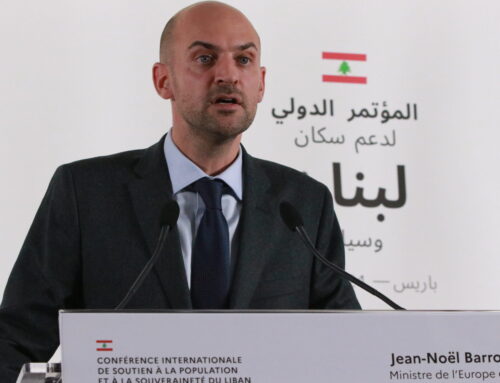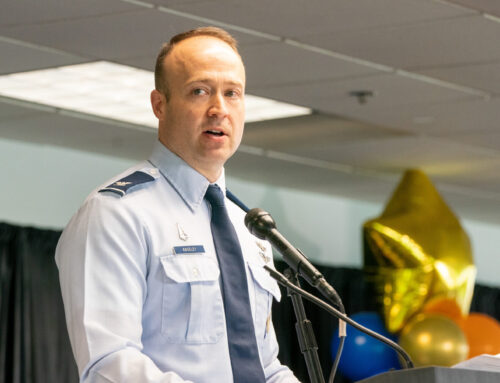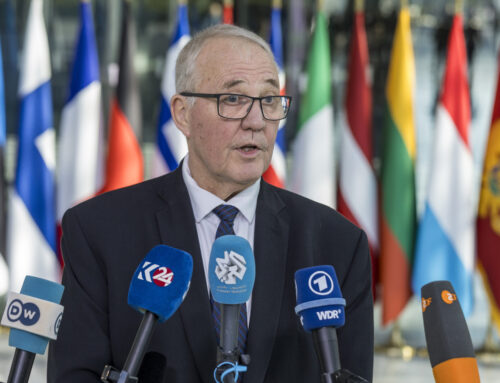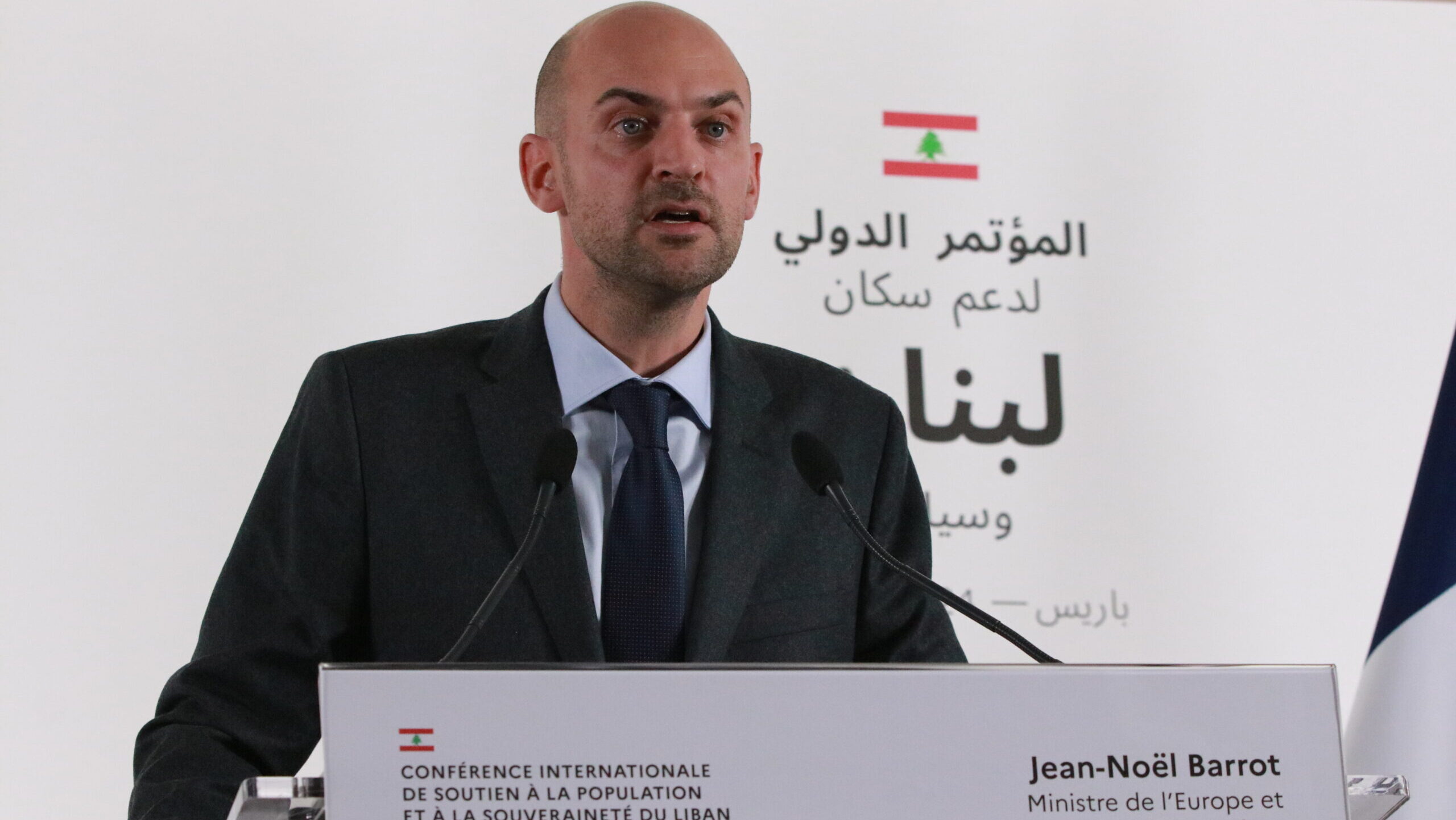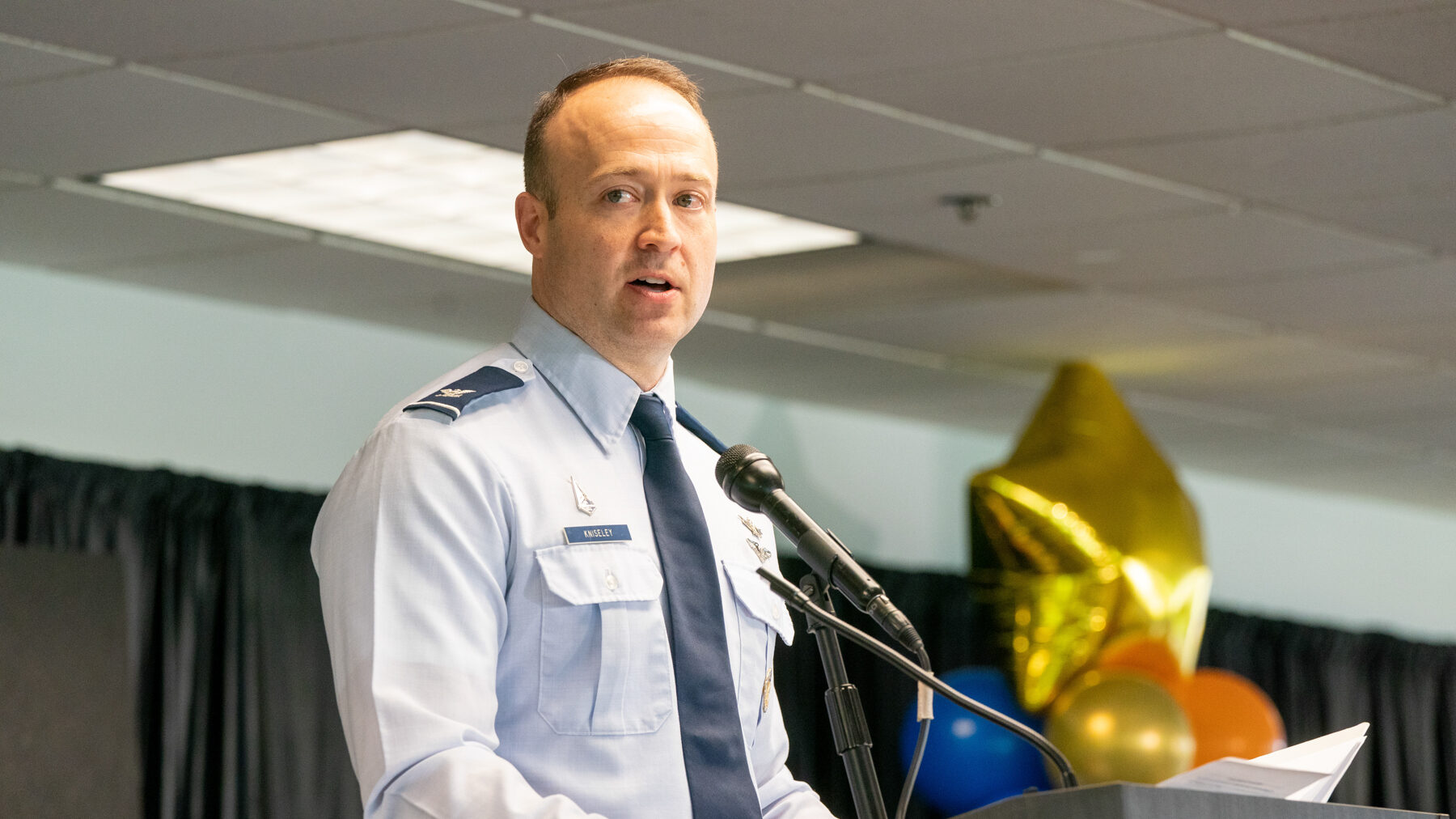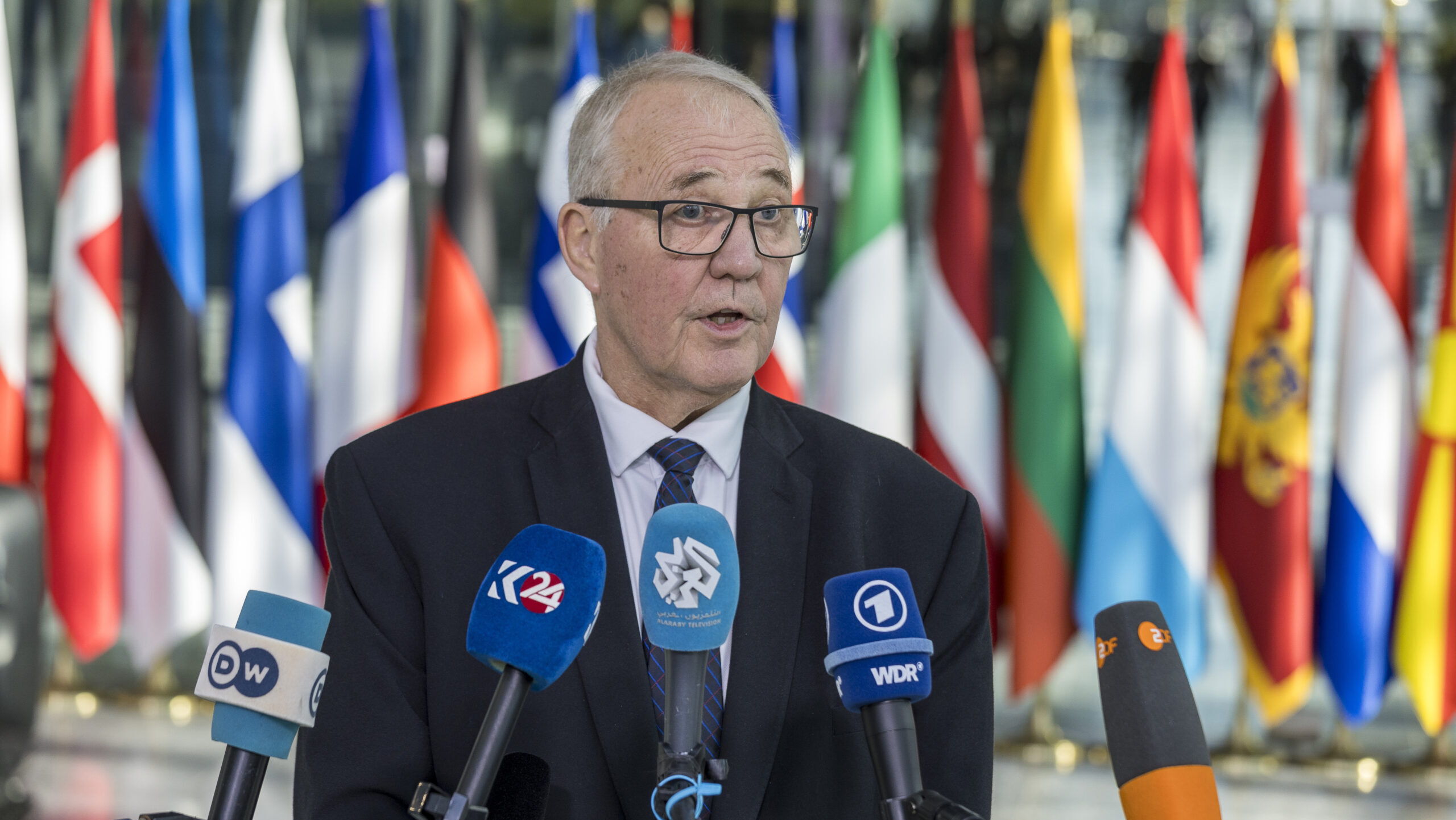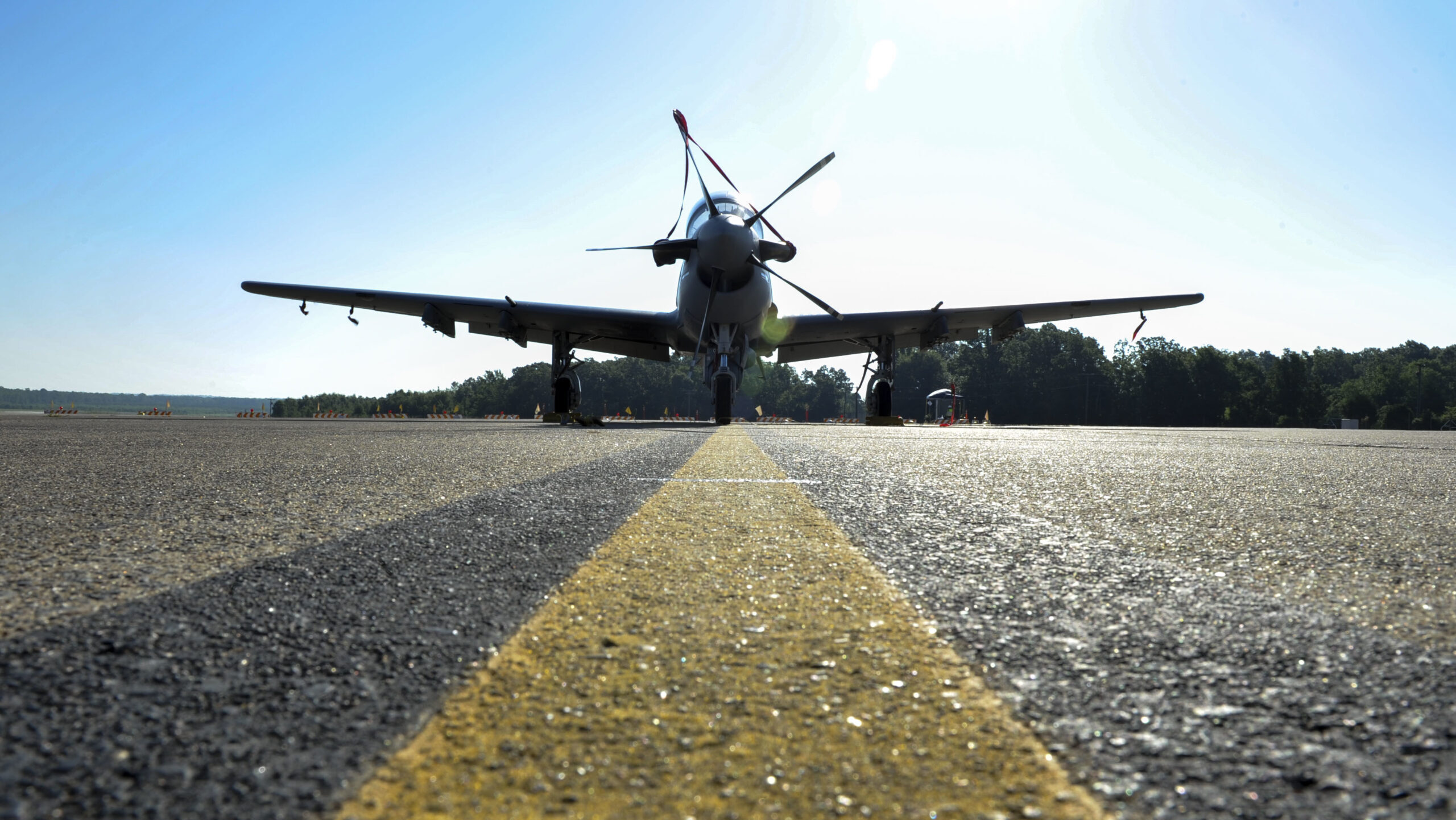A newly delivered British F-35B fifth generation jet arrives at RAF Marham, England. (UK MoD)
BELFAST — A top British defense official revealed for the first time the UK is working on a secret armed forces design and capability review aimed at reshaping how it prosecutes future wars.
Lt. Gen. Rob Magowan, deputy chief of defence staff for military capability, told lawmakers from the UK Defence Committee on Tuesday that a classified Future Force Design Review (FFDR) is underway and will be defined by three core elements: how Britain fights future conflicts, any potential restructuring of the armed forces and other “capability choices.”
He added that an “outline” for FFDR has already been drawn up.
“It is obviously at classified level,” he said, adding that the “key point” for the timeline is that it’s ready to inform a broader, future national defense plan, which he assumed would come “next year or the end of this year.”
“We’ve got to inform that from a military capability perspective, from an operational design force and capability choice perspective,” Magowan said.
Magowan would not be drawn on the content of the plan given its classified status. The UK MoD had not responded to Breaking Defense’s request for comment at the time of publication.
Disclosure of the future force review comes amid intense political scrutiny over the credibility of UK warfighting capabilities and calls by lawmakers to increase defense spending above the projected level of 2.3 percent GDP this year. The budgetary issues have become particularly ugly since London decided not to commit any additional defense funding in its spring budget, announced earlier this month.
RELATED: Ukraine war leaves British Army ‘very uncomfortable’ with Future Soldier capabilities
UK Prime Minister Rishi Sunak continues to say that “when the conditions allow,” national defense spending of 2.5 percent GDP will be approved, though his Conservative Party could be ousted from government before that happens, pending a general election later this year. A specific date for the election has still to be set.
Magowan flatly admitted that current military spending is inadequate.
“We’ve been very clear that the amount of money we’re spending on munitions at the moment does not meet in all areas, the threats that we face,” he said.
Magowan also confirmed that he and Grant Shapps, UK defence secretary also testifying Tuesday, held a conversation with Sunak requesting “additional resource if we want to mitigate this level of operational risk.”
When pressed by Derek Twigg, a Labour party lawmaker, Shapps appeared unable to name a single program for which he had requested more funding.
“It’s hard to give an exact list,” he said. “There’s almost no program that I wouldn’t want to enhance.”
Magowan was more specific. He acknowledged that more money for integrated air and missile defense is needed “above the program of record.”
In the 2023 Defence Command Paper, a national review of British defense policy, London said it “will step up our efforts to deliver an Integrated Air and Missile Defence approach” in light of the potential for airborne “attack” at both home and abroad, “at its most acute for over thirty years — as evidenced in the war in Ukraine.”
The Command Paper also designated the Royal Air Force as the lead IADS service to “promote the use of advanced ground-based, airborne, at sea and space-based sensors, and an extensive range of air and missile capabilities, including counter UAS, to detect, protect and defend the UK.”
Magowan did not provide an update on any progress made relating to such strategy however.
He said that if necessary, the UK would be ready for war immediately, but agreed with Mark Francois, a Conservative lawmaker, that the force is not capable of fighting an “enduring war” against Russia, for more than a matter of months.
“For people watching and hearing that the UK isn’t ready for war exclusively with Russia, its important to understand, because we’re in NATO, and Article 5 exists, that we’d never be in” a situation of fighting Moscow alone, said Shapps, attempting to downplay the significance of UK warfighting problems.
Elsewhere Magowan said that the UK will soon sign a new “long-term” munitions contract, though did not elaborate further, while Shapps explained that the MoD had looked again at its equipment inventory to assess if additional weapons to Ukraine could be supplied. He did not comment on any outcomes or further action taken.
Before the next NATO summit in July, set to be hosted in Washington, the UK hopes to announce a multinational agreement with member states for a “particular capability,” or munitions standard, according to Magowan.



